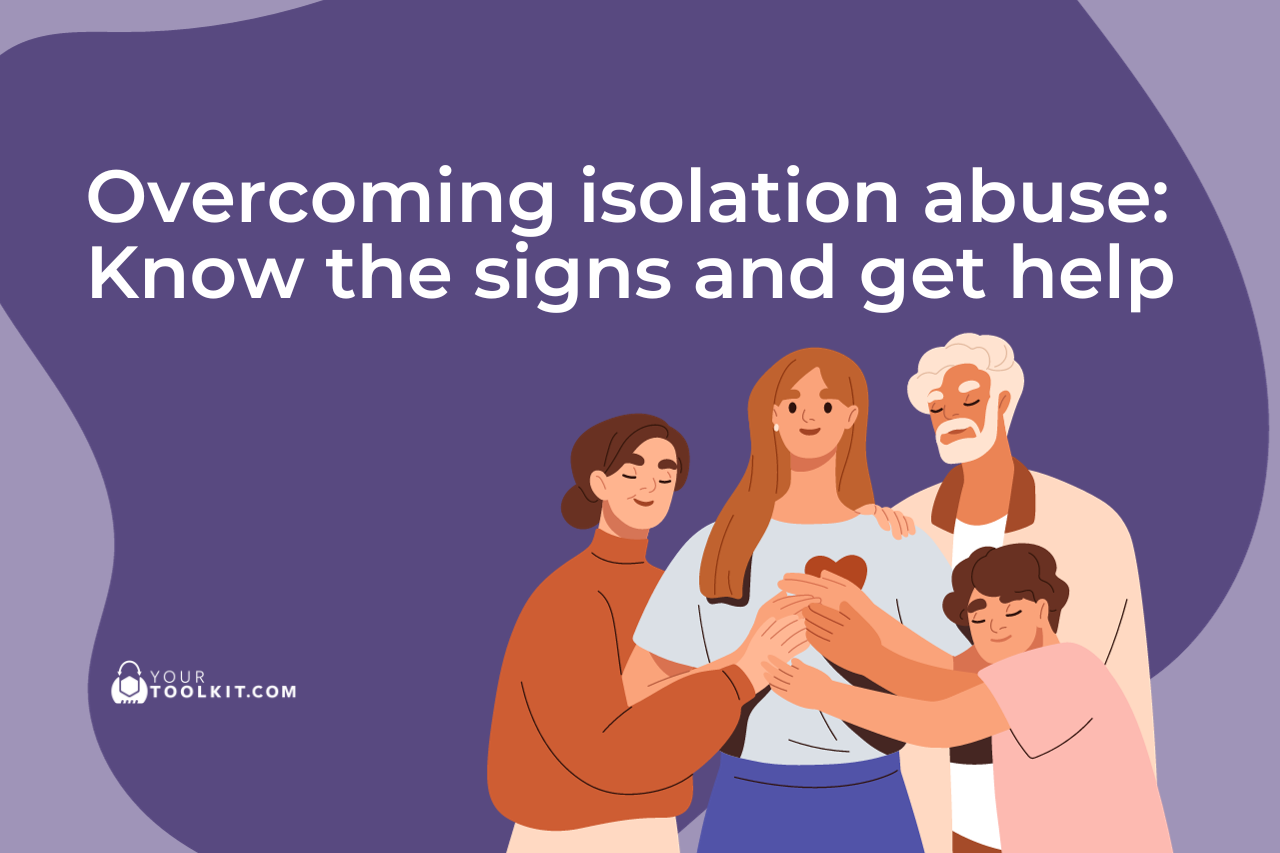Isolation abuse is a hidden kind of domestic abuse. It makes people feel trapped and alone. It’s important to know about isolation abuse signs and learn domestic abuse isolation strategies to heal and get back control of your life.
What is Isolation Abuse?
Isolation abuse happens when one partner keeps the other away from friends and family. By restricting their social interactions and freedom, an abuser can create a cycle of dependency and control. It’s a core tactic used in abusive relationships, stripping away the victim’s sense of self and autonomy. Perpetrators of isolation abuse manipulate their partners into believing that they’re alone and without support. This can create an unhealthy reliance on the abuser.
This can include mean comments about friends, making the person scared to go out, or making them think their loved ones are bad for them. These coercive control tactics slowly eat away at the victim’s social connections, trapping them in a world where they feel they have nowhere to turn.
If you or someone you know is experiencing isolation abuse, take our Coercive Control Self-Assessment – Learn to identify whether coercive control is a part of your relationship dynamics.
Recognising the Signs of Isolation Abuse
It’s crucial for victims of isolation abuse to recognise the tell-tale signs in their relationship. Some indicators include:
- Limited Access to the Outside World: The abuser might restrict or control the victim’s use of phones, vehicles, or the internet.
- Alienation from Friends and Family: They criticise the victim’s friends and family, subtly discouraging relationships with them or forbidding contact.
- Control Over Daily Activities: Strict monitoring or dictation of what the victim does, where they go, and who they interact with.
Knowing these signs helps you start dealing with isolation abuse. Recognising you’re in a bad situation is the first step to getting help.
Building a Support Network in Australia
Overcoming isolation abuse requires courage, strength, and a solid support system. Despite feeling alone, there are numerous resources and communities ready to embrace and assist victims of isolation abuse through this journey in Australia.
- Reach Out to Trusted Individuals: Speaking to friends, family members, or trusted colleagues is the first step out of isolation.
- Professional and Community Support: Seeking domestic abuse isolation strategies from professionals. Accessing support services that understand what the victim is going through can provide both emotional and practical support.
- Legal Action if Necessary: For isolation abuse victims in immediate danger, it might be necessary to apply for a family violence restraining order for protection against the abuser.
- Therapy and Counselling: These services offer space to heal and strategies for rebuilding confidence and autonomy.
Connecting with others, especially those who have experienced similar situations, can also provide the strength and perspective needed to overcome isolation abuse. They not only offer emotional support but also practical advice and resources that the victim might not have known existed.
Finding the Courage to Reach Out to Friends and Family
Breaking the silence on your experience is often the most challenging step to overcoming isolation abuse, but it’s also one of the most liberating. Your friends and family care about you and your well-being.
Start small. Choose one person you really trust — someone who has been there for you and shown empathy and understanding in the past. You don’t have to tell them everything at once. Begin by expressing that you’re going through a challenging time and need someone to talk to. Share specific instances of your experience, explaining how these incidents have made you feel isolated or controlled.
Remember, it’s okay to be vulnerable. It’s okay to admit that things are not alright. More often than not, your loved ones are waiting for an opportunity to help you. Embracing their support will not only provide emotional comfort but also empower you with the strength to take further steps in breaking free from abuse.
Coping with Isolation Abuse: Seeking Support Within Your Workplace
Your workplace can also be a sanctuary of support, much more than a source of income. If you feel distressed due to isolation abuse, consider confiding in a trusted colleague, human resources (HR) representative, or a workplace counsellor if your company provides one. Many workplaces have policies in place for supporting staff through personal challenges, including domestic abuse.
Explain to them, as you’re comfortable, the situation you’re facing at home. Be honest about how it’s affecting your mental and emotional well-being, or even your performance at work – if you’re concerned about your partner finding out, ask them to keep the conversation confidential. HR personnel or your counsellor can guide you on company policies that protect you and may refer you to corporate-sponsored support programs.
Building a supportive network at work helps create a safe space outside of your home, where you are free from the stress and pressure of an abusive environment. It’s about surrounding yourself with people who can offer a listening ear, words of encouragement, and a sense of normalcy and support.
In both personal and professional environments, the key is to remember that you are not alone. Reaching out may seem scary, but doing so often leads to healing and recovery. Support, understanding, and compassion are much closer than you think.
Moving Forward
Breaking free from the cycle of abuse is a journey, and you don’t need to do it alone.
If you recognise these patterns in your life, please take our Coercive Control Self-Assessment to understand the dynamics of isolation abuse. Everyone deserves a life filled with support, love, and freedom, and it’s never too late to start this journey toward recovery.

